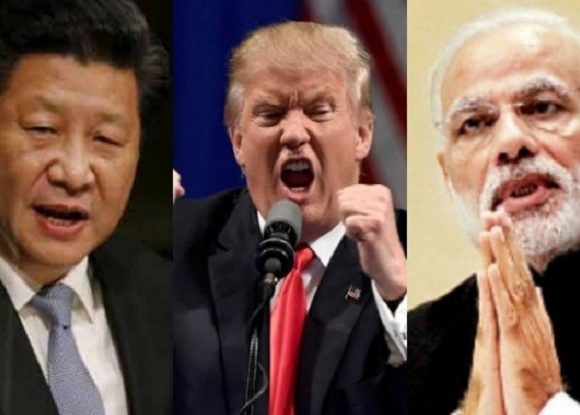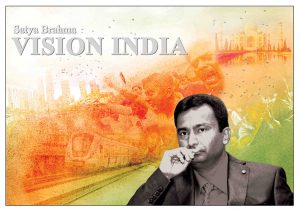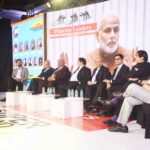

Former Secretary of State Hillary Clinton launched her presidential campaign yesterday with a video. From my perspective, it was a poor messaging decision at the outset. As Bill Curry aptly noted, “Needing desperately to connect with the broader public, she opts for the virtual reality of a pre-taped video delivered via social media. Go figure.”
Be a part of this campaign from the very beginning: https://t.co/gYqo31Pp1l
— Hillary Clinton (@HillaryClinton) April 12, 2015
She should have been on a small stage in a high school gym in Iowa, describing who she is and why she wants to run. She should have risked a live audience and what it might convey to have her family – Bill, Chelsea, Marc and Charlotte – with her on stage. No candidate runs alone for president. By not including enthusiastic supporters and her family in the opening shot, it made her again seem like an isolated figure, above and away from all of the world’s messiness and unrelated to people.
When Clinton finished her four-year tenure as Obama’s secretary of state in December 2012, many allies thought she’d solved both problems. Four years of global diplomacy and hundreds of hours in the White House Situation Room would silence questions about her credentials. A relatively popular Obama foreign policy agenda placed Clinton on the winning side of public opinion. The accolades poured in: “Perhaps the most significant Secretary of State since Dean Acheson,” declared Google chairman Eric Schmidt. “Her work … has been outstanding,” said Republican Sen. John McCain. Foreign policy, it seemed safe to say, would not be the Achilles’ heel in 2016 that it had been eight years earlier.But two years of almost nonstop global chaos — terrorism, failed states, the breakdown of borders — has upended that assumption for Clinton’s team. From Europe to the Middle East to Asia, countries Clinton once cast as foreign policy successes are now crisis spots, and public opinion toward Obama’s overall foreign policy performance has turned sharply negative. Then there are the scandal-tinged questions about Clinton’s management of the State Department, in the form of GOP investigations into the 2012 attacks in Benghazi and Clinton’s use of a private email server.
As Clinton begins her White House campaign, her strategists face a political challenge: how to cast a positive light on a State Department record that has sprouted some warts.
Clinton’s allies say it can be done, especially when her Republican rivals are short on real-world foreign policy experience.
As different as it was from her 2008 announcement video, it was still disappointing. She’s not even in the first 90 seconds of the two-minute video. This, as Talk Left’s Jeralyn Merritt explained, makes it easy to mistake it for something else.
Although it was purposively crafted to focus on the “everyday” people she hopes will make up herwinning coalition, it wasn’t all that inspiring or reassuring. It didn’t make me want to get up from the sofa and do something, such as favorite or share the video on social media, plaster a bumper sticker on my car, plant a lawn sign outside my house, make a donation to her campaign or join her on her road trip.
Frankly, with the dialogue being mostly about “getting ready” for some major life change, it reminded me of what could pass as an advertisement for an insurance company – but not one of those that regularly feature a gecko and invariably make me laugh.
The video just wasn’t moving or compelling. It didn’t make my heart skip a beat or tears fill my eyes. It was nothing like this, which is just for a sports drink, not a presidential campaign. But that ad is also about a celebrity basketball player, Derrick Rose, wanting to be a role model. It shows his daily commitment to keep working, sacrificing and giving all that he can to help more “roses” push through the “concrete.” By lifting Tupac above Rose, as his guiding light and soulful touchstone, the ad goes a long way to imbue Rose with a sense of humility and gratefulness about his success.
The message: leaders follow leaders. Rose is one and he wants more to follow. After watching his commercial, I was ready to start rooting for the Bulls, despite having been a devoted Laker fan in the early ’90s.
Clinton’s team should have thought more creatively about ways to show her acting as a “champion,” not just saying it, direct to camera, alone, with a nicely manicured yard and a well-maintained, rather stately white house in the background. They could have portrayed her ceaseless striving as a fight for justice. They could have shown her humanity: the nervousness she’s surely felt, the expectations she’s tried to live up to and the people she hasn’t wanted to disappoint. They could have invoked Clinton’s role model, Eleanor Roosevelt. They could have done so much more with why she’s running for president. The issues most people face today involve more than the normal levels of uncertainty that go with starting a business, having a child, getting married or beginning a retirement.
With virtually no competition for the Democratic nomination, Clinton is running against herself, meaning the conventional political wisdom about her past presidential campaign’s failures and the myriad impressions the public has of her from her decades in the national spotlight. And once again, she already seems to be her own worst enemy.

Lara M. Brown, Ph.D., is an associate professor and the program director of the Political Management Program in the Graduate School of Political Management at The George Washington University, and the author of “Jockeying for the American Presidency: The Political Opportunism of Aspirants.” She also served in President William J. Clinton’s administration at the U.S. Department of Education.


















